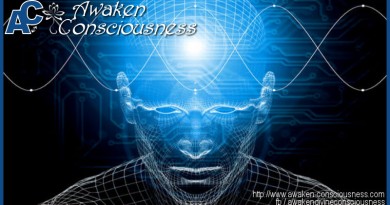THE FEATURES AND INDICATORS OF COSMIC CONSCIOUSNESS
THE FEATURES AND INDICATORS OF COSMIC CONSCIOUSNESS
Richard Maurice Bucke was a highly respected Canadian psychiatrist who in his spare time immersed himself in poetry and literature, sometimes spending whole evenings with friends reciting the
work of Whitman, Wordsworth, Shelley, Keats, and Browning. After one such evening on a visit to England, while on a long journey in his horse and buggy and feeling particularly inspired by Whitman’s poetry, Bucke had a great illumination, a flash of what he called “cosmic consciousness.”
In that single moment, he realized that the cosmos is not dead matter but fully alive; that humans have a soul and are immortal; that the universe is built so that all things work toward the good, with everyone’s eventual happiness a certainty; and that love is the basic principle in the universe. Bucke learned more in that moment, he admitted, than in years of study. Yet it was only a glimpse of true enlightenment, and he recognized that there had been a select group of people throughout history who had achieved the state permanently, and who had naturally influenced the rest of humanity in hugely greater proportion than their small number. Some of them—Jesus, Muhammed, Buddha—had inspired great religions, because they offered a new understanding of what it meant to be human. It was part of our evolution to grow in consciousness, Bucke believed, and these figures heralded the adoption of new traits of being and awareness that were not yet available to the general population.
What is cosmic consciousness?
Bucke distinguished between different levels of consciousness. “Simple consciousness” is the awareness that most animals have of their bodies and the environment around them.
As Bucke puts it: “The animal is, as it were, immersed in his consciousness as a fish in the sea; he cannot, even in imagination, get outside of it for one moment so as to realize it.” “Self- consciousness,” on the other hand, is unique to humans and gives us a very different awareness of ourselves: we can think about the fact that we think. Self-consciousness, along with having language toexpress it and make use of it, makes homo sapiens human.
Cosmic consciousness, in turn, puts some humans way above others. Bucke describes it as an acute awareness of the true “life and order of the universe” in which a person experiences oneness with God or universal energy. This intellectual awareness, or the apprehension of truth, brings with it an astounding joyousness, because all the misperceptions of normal self-consciousness are lifted. If people see that the nature of the universe is love, and that we are all part of an undying conscious life force, they can no longer experience fear or doubt. Implications for humanity In a time of cosmic consciousness, Bucke says, religion would not exist, as there would be no need to profess belief or unbelief—everyone would have first-hand awareness of God and the perfect spiritual nature of the universe. The difference between that world and the one we know now would be like that between the dawn of humanity and the present.
A leap in evolution of this magnitude sounds far-fetched, but Bucke points out that all new human traits or abilities began first with one person and in time became universal. The apprehension of color, for instance, came relatively late to humans. There is no mention in the Bible of the sky being blue, and the ancient Greeks perceived no more than three or four colors. Bucke’s point was that as time has gone on, man has been able to perceive things that weren’t previously considered to exist.
Darwin noted that newer traits in species had a tendency to disappear— the principle of reversion. Animals that have been highly bred are more susceptible to disease and have poorer faculties. Their traits are unstable. The flipside of this is that the longer a trait stays with a species or race, the more stable it becomes. How does this relate to cosmic consciousness? Simply that the first instances inevitably seemed like bizarre anomalies, but as more cases have appeared we have become more accepting of the possibility that some people can transcend normal
self-consciousness, and we recognize such people as our natural superiors. They are literally more evolved.
Characteristics of illumination
Bucke came up with a list of historical figures who in his view had clearly achieved cosmic consciousness: Jesus, Buddha, Muhammed, St. Paul, Francis Bacon, Jacob Boehme, John Yepes (John of the Cross), Bartolomé Las Casas, Plotinus, Dante Alighieri, Honoré de Balzac, Walt Whitman, and Edward Carpenter. His list of “lesser lights,” those he was not sure about, included Moses, Socrates, Blaise Pascal, Emanuel Swedenborg, William Blake, Ralph Waldo Emerson, and Sri Ramakrishna, and a number of his contemporaries identified only by their initials. In this secondary list were four women, including the medieval mystic Madame Guyon.
Bucke’s discussions of these cases makes fascinating reading and forms the body of the book.
He saw the following as characteristic of people who had achieved cosmic consciousness:
❖ Average age at illumination 35.
❖ History of earnest spiritual seeking, e.g., love of scriptures or meditation.
❖ Good physical health.
❖ Enjoyment of solitude (many on the list never married).
❖ Generally well liked or loved.
❖ Little interest in money.
The features or indicators of cosmic consciousness include:
❖ Initially, seeing an extremely bright light.
❖ Appreciation of separateness as an illusion, i.e., everything in the universe is one.
❖ Appreciation of eternal life as a fact.
❖ After illumination, subjects exist in permanent happiness. They actually look different, and have a joyous expression.
❖ No sense of death, fear, or sin—Whitman, for instance, moved among dangerous people in New York but no one ever touched him.
❖ Those who have experienced illumination recognize others who have, yet find it difficult to express what they have seen.
Bucke made some other interesting points:
❖ Most experiences of cosmic consciousness happen in spring or summer.
❖ The level of education is not a factor—some of the illuminati were highly educated, others had little schooling.
❖ Illumined people generally had parents of opposing temperaments, e.g., a sanguine mother, a melancholy father.
Final comments
Cosmic Consciousness is far from a perfect book. Be warned that Bucke states his beliefs in the superiority of white civilization; the eventual triumph of socialism; and the theory that Francis Bacon wrote the works of Shakespeare. Many readers will take issue with his list of the cosmically conscious, since he fails to mention, among others, Teresa of Avila, Julian of Norwich, and St. Francis of Assisi. Given what he knew and the time in which he wrote, however, these aspects can be forgiven. In making a convincing case for commonality in the experience of cosmic consciousness Bucke blazed a trail, and his effort has rightly made the book a classic. Cosmic Consciousness is not rigorous in a scientific sense, but its goal of objectively mapping out
mystical experience came years before William James produced The Varieties of Religious Experience (which heaps praise on Bucke’s book) and a full decade before Evelyn Underhill’s influential Mysticism.
Bucke’s theme that cases of cosmic consciousness are on the rise has also found echoes in modern writers such as Abraham Maslow (his idea of a growing number of “self-actualized” people) and Marilyn Ferguson (The Aquarian Conspiracy). The idea of cosmic consciousness may seem naïve—we are, after all, still walking around with prehistoric humans’ instinctive reflexes—yet it is supported by the fact that personal enlightenment as a concept is now an accepted part of our culture. It is appreciated as a noble goal, an alternative to life bound by self-consciousness. We like to know that there are a sprinkling of people who exist in permanent joy and happiness, because they remind us that even within our bodies we can be spiritual beings.
–
This is an excerpts from the E-book: 50 Spiritual Classics – Timeless Wisdom from 50 great books of inner discovery, enlightenment and purpose.
This E-book can be downloaded in our E-book Library under the tab Spirituality.
If you like what Awaken Consciousness is offering you, would you please support us by buying us a cup of coffee? Any support and donation is very welcome and will allow us to keep going just a little longer and keep this website add free. Just slide the slider left <- or right -> to change the amount of coffee you'd like to share with us 😉 Thank you !Support us with a cup of coffee?




